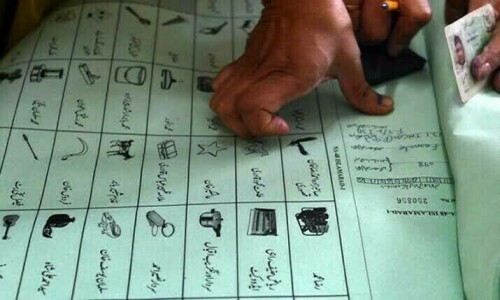BEIRUT: After a long estrangement, Turkish President Recep Tayyip Erdogan and his Syrian counterpart Bashar al-Assad may be edging towards a meeting, but analysts say normalisation will likely be gradual due to thorny issues.
Ankara initially sought to topple Damascus after the Syrian conflict erupted in 2011 with the repression of anti-government protests, and Erdogan branded Assad a “murderer”.
As Damascus regained territory, however, Erdogan reversed course. Since 2022, top Syrian and Turkish officials have met for Russia-mediated talks, with Moscow pushing for a detente.
Erdogan said this month he could invite Assad to Turkiye “at any moment”, while Assad said any meeting would depend on the “content”.
Foreign Policy Research Institute says Syrian refugees have become a massive liability for Erdogan
Mona Yacoubian, vice president of the Middle East and North Africa centre at the United States Institute of Peace, said any normalisation “is not going to happen overnight... even if there’s an Assad-Erdogan meeting”. Given the complexities, she said, “this will be a very gradual and drawn-out process”.
But “even the semblance” of normalisation “is something that Erdogan is looking for”, she added.
Since the war began, Syrians including opposition figures have flooded into Turkiye, which now hosts about 3.2 million refugees. Anti-Syrian sentiment and economic woes have piled pressure on Erdogan for their return.
“Syria and the Syrian refugees have become a massive liability for Erdogan,” said Aaron Stein, president of the US-based Foreign Policy Research Institute. “Ankara’s investment in the Syrian opposition, from a military standpoint, is a complete failure,” he added.
‘Takes two to tango’
A Turkish defence ministry source said that “Turkiye is in Syria to eliminate terrorist attacks and threats against its territory... and to prevent the establishment of a terrorist corridor in northern Syria as a fait accompli”, referring to Kurdish forces.
Turkish troops and Turkiye-backed rebel factions control swathes of northern Syria, and Ankara has launched successive cross-border offensives since 2016, mainly to clear the area of the Kurdish-led Syrian Democratic Forces (SDF).
Assad said this week he was open to meeting Erdogan but noted “support for terrorism, and the withdrawal from Syrian territory” of Turkish troops were the “essence of the problem”.
According to Stein, if Erdogan says an encounter with Assad is possible, it may happen. “But in this process, it takes two to tango, and his dance partner is a murderer who hates him,” he said.
The US-backed, Kurdish-led SDF spearheaded the battle that dislodged the militant Islamic State group from their last scraps of Syrian territory in 2019. The Kurds have established a semi-autonomous administration spanning swathes of the north and northeast. Assad accuses the Kurdish administration of “separatism” and views US forces in SDF-held territory as an “occupation”.
Turkiye sees the Kurdish People’s Protection Units (YPG), which dominate the SDF, as an offshoot of the Kurdistan Workers’ Party (PKK), which it considers a “terrorist” group. Any Syria-Turkiye rapprochement raises serious concerns for the Kurds, who risk seeing hard-fought gains during years of war wiped out.
Soner Cagaptay, director of the Turkish Research Programme at the Washington Institute, said Ankara “wants Assad to snuff out the PKK so the organisation will go dormant”.
This would start “the real normalisation in the northwest, with Turkiye gradually committing to withdraw troops”, he said.
‘Tricky part’
A transitional arrangement could see Erdogan recognise Assad’s authority in northern Syria while keeping security “in Ankara’s hands”, with Turkiye’s eventual goal being to repatriate Syrian refugees there, he said. But “the tricky part” is that many civilians in Turkish-controlled areas of Syria do not want to live under Assad and could turn against Ankara, Cagaptay added.
North and northwest Syria have seen anti-Turkish protests in recent weeks and witnessed demonstrations in 2022 when ties began to thaw.
In the Kurdish-controlled northeast, Stein noted the US presence would make any Syrian-enabled Turkish offensive against PKK-linked groups more challenging.
“The one tool available is the Adana Agreement... which sanctions Turkish operations within a few kilometres of the border,” Stein said. Under the 1998 accord, Damascus agreed to withhold support for the PKK and to expel its fighters from Syrian soil after Turkiye threatened military action.
Yacoubian said it remained to be seen whether the Adana agreement could be “repurposed” now, with the Kurds controlling large swathes of territory.
Moves towards normalisation could “be in anticipation of a potential shift in American policy” concerning Syria and troops there, she noted, with US elections on the horizon.
Published in Dawn, July 22nd, 2024













































